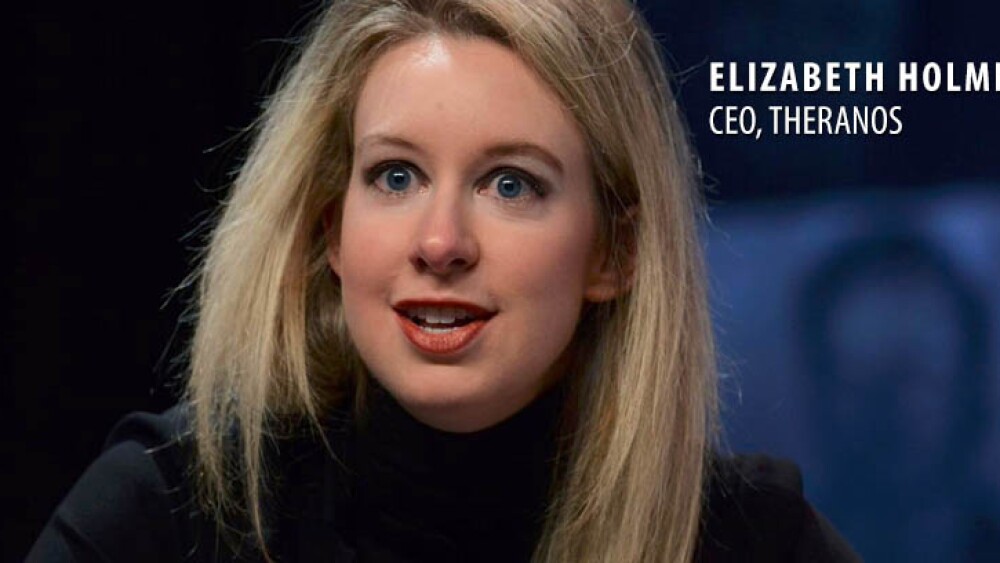August 5, 2016
By Alex Keown, BioSpace.com Breaking News Staff
WASHINGTON – There is continued fallout among scientists and members of the American Association for Clinical Chemistry (AACC) following the presentation of embattled Theranos head Elizabeth Holmes this week during the annual meeting in Philadelphia.
There is infighting among leaders of the AACC over Holmes’ being allowed to present, with two members of the organizing board threatening to resign, the Financial Times of London reported this morning. Members of the AACC’s organizing committee who dissented over Holmes’ inclusion were fearful that her presence would give a public perception of an endorsement of the company and its products. Theranos of course has been under intense scrutiny over its blood-testing claims and is facing criminal and congressional investigations. The company is also the subject of several lawsuits following its decision to invalidate two-years’ worth of blood testing data—data that patients used to make medical decisions.
Andy Hoofnagle, a member of the organizing committee, told the Financial Times that he would not pay his dues to the AACC next year, in effect a resignation of his membership. Hoofnagle was among the organizing committee members who fought to prevent Holmes from making a presentation.
“This conference is about peer reviewed science—you don’t bring in advertisers and give them the stage at a scientific meeting,” Hoofnagle, head of clinical chemistry at the University of Washington, said, according to the Financial Times.
Another dissenter, Geoffrey Baird, also a professor at the University of Washington, said he was concerned the organization would allow Holmes to present despite her two-year ban from the blood-testing industry due to her company’s violations of CLIA guidelines at a Northern California laboratory.
After Hoofnagle and his confederates were overruled regarding Holmes’ inclusion, he told the Times he and colleagues sought to give her a less prestigious time to speak—rather than the prime 8 p.m. slot in front of 3,000 members.
On Monday, Holmes’ presentation did not discuss her company’s troubles over the past year, but focused on a new product in early development—a minilab about the size of a placemat that is expected to be able to run a multitude of diagnostic tests, such as checking the count of red blood cells or determine if a disease is present in the body, such as HIV. During her presentation, Holmes said the minilab was designed to process small sample volumes across a broad set of different test methodologies. The lab is small enough that it could be maintained in many doctor’s offices, individual homes, or in areas that are critically short of lab facilities. Holmes hopes to see regulatory approval in a few years.
Not only was Holmes’ presentation criticized for excluding information about its woes, but Baird told the Times it seemed as if the minilab presentation included few points of data and seemed to have been “cobbled together in weeks, with the feel of someone putting together a last-minute term paper late at night.”
Prior to Holmes presentation, Patricia Jones, president of the AACC, said she believed Holmes should be given a chance, basing her decision in some part due to the new science advisers Theranos has added to its board, including four former AACC presidents.
“The people on her board are people I respect—and if they say [Holmes] has real science, then I am willing to listen and hear her science,” Jones said in July.





